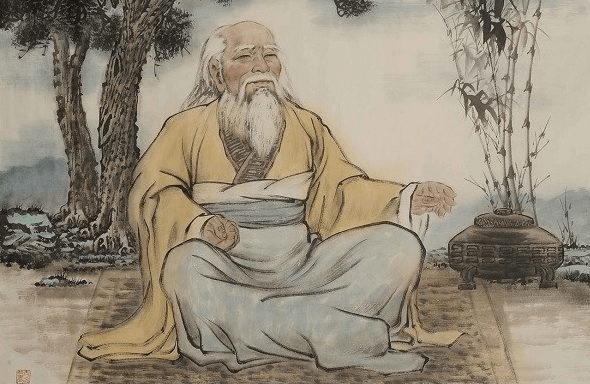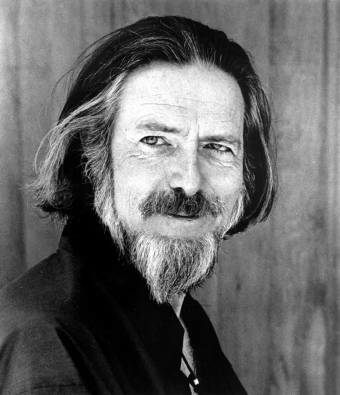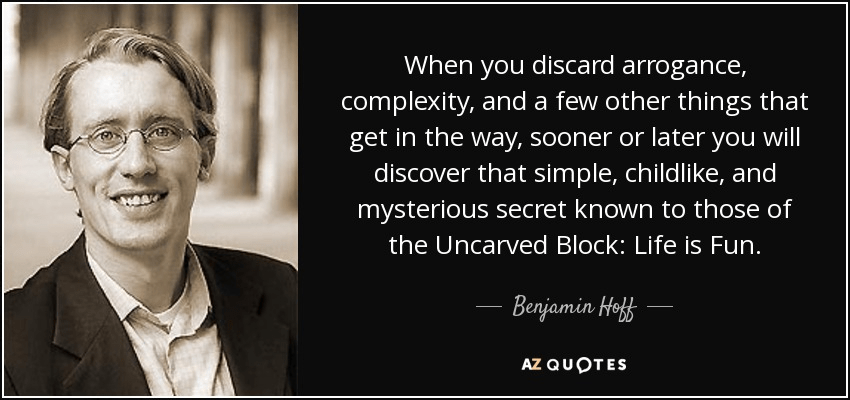“The uncarved block is free from desire, and the empire will come to peace of its own accord.” (Chapter 25), Tao Te Ching by Lao Tzu.
We like to think, we like to find ways to achieve our goals. We relish control, we like to predict events and take on challenges. We like to disrupt, to throw a tantrum in the face of the universe, to shake things up, cause we think we are in control, and that the universe would work according to what we put in, we are ambitious and then demand the fruits of it.
However, we rarely take into account what Nature has in store for us, in the wild chase of ambition we forget about the path. This is the key preaching of the Eastern philosophy of Daoism, the Chinese Philosophy that primarily focuses on these ideas, the ideas of human interaction and nature
Alan Watts was a British philosopher, writer, and speaker who was known for his interpretations of Eastern philosophy for a Western audience. He often spoke about the importance of living in the present moment and letting go of attachment to the past or future.
When it came to ambition, Watts believed that it could be a double-edged sword. On the one hand, ambition can be a powerful motivator that can help us achieve great things. On the other hand, it can also lead to stress, anxiety, and dissatisfaction.
In one of his talks, Watts said:
“Ambition is a very funny thing. It’s a very powerful thing, but it’s also a very dangerous thing. Because if you’re ambitious, you’re always looking ahead, you’re always looking for the next thing, you’re always looking for the next goal. And you never really enjoy the present moment.”
Watts believed that the best way to deal with ambition was to find a balance between striving for our goals and living in the present moment.
He said:
“The trick is to be ambitious without being attached to the results. To be ambitious without being anxious. To be ambitious without being afraid of failure.”
Alan Watts
This might be the main essence of it all, to be vary of the future, to set goals for it, but to live and deal with the present, to approach the present without the anxiety of an uncertain and fairly out-of-control future, to understand the dichotomy of control. This is what the idea of an uncarved block leads us to . How to go about all our challenges and obstacles in our most elemental state.
The philosophy of the uncarved block is a Taoist concept that emphasizes the importance of simplicity and naturalness. It is based on the idea that things in their original state are perfect and complete and that any attempt to change or improve them will only diminish their true nature.
The uncarved block is often used as a metaphor for the human mind. Just as a block of wood can be carved into any number of different shapes, so too can the mind be shaped by our thoughts and experiences. However, Taoists believe that the best way to live is to allow the mind to remain uncarved, in its natural state of simplicity and openness.
There are many benefits to living a life in accordance with the philosophy of the uncarved block. When we allow our minds to remain uncarved, we are better able to experience the world as it truly is, without the filter of our own preconceived notions. We are also more likely to be spontaneous and creative, and to find solutions to problems that are not immediately obvious.
Of course, living a life of simplicity is not always easy. It requires us to be willing to let go of our attachments to material possessions, social status, and other forms of external validation. It also requires us to be willing to face our fears and insecurities and to embrace the unknown.
However, the rewards of living a life in accordance with the philosophy of the uncarved block are great. We can experience a greater sense of peace and contentment, and we can live our lives in a way that is more aligned with our true nature.
Here are some of the key principles of the philosophy of the uncarved block:
Simplicity: The uncarved block represents simplicity and naturalness. When we live a simple life, we are less stressed and more in tune with our true nature.
Spontaneity: The uncarved block is also a symbol of spontaneity. When we live spontaneously, we are more open to new experiences and possibilities.
Acceptance: The uncarved block represents acceptance. When we accept things as they are, we are less likely to be disappointed or frustrated.
Openness: The uncarved block is a symbol of openness. When we are open to new ideas and experiences, we are more likely to grow and learn.
If you are looking for a way to live a more peaceful, fulfilling, and meaningful life, the philosophy of the uncarved block is a great place to start.
Here are some quotations from Tao Te Ching, the book by Lao Tzu, and this was made possible due to the incredible tools like ChatGPT and Bard, what a time we are living in, crazy!
“The uncarved block is free from desire, and the empire will come to peace of its own accord.” (Chapter 25)
“The wise man is like the uncarved block: he is simple and open, and he can be shaped by the Tao.” (Chapter 28)
“The sage does not carve himself into a particular shape. He remains fluid and adaptable, like water.” (Chapter 70)
“The uncarved block is the essence of all things. It is the source of all potentiality. When we try to carve the block into something specific, we lose its essential nature.” (Chapter 17)
“The best way to live is to live like the uncarved block. Let go of your attachments, and allow yourself to be shaped by the Tao.” (Chapter 27)
This is a rather challenging concept, isn’t it? We always hold independent thought and actions in the highest regard, we are told that ambitions can move mountains and that by having a will you will find the way, and suddenly this idea given by a Chinese state diplomat turned philosopher, who lived centuries ago, and whose ideas are celebrated till date, tells us that give your ears to the nature, have no strong preoccupations and that everything that you seem to know and pride upon knowing may cloud your thinking and will not lead you to ” The Path”. Our ego has formed as a defense against all the uncertainty we face and our stubbornness to be unprepared and caught off-guard, that same ego sometimes clouds us from the essence of life.
So I guess that was my understanding of this so simple yet so challenging thought, the idea to limit our ego and find the path acting like an uncarved block. There are many such ideas that I want to read and also would like to know what you have to say about it, so feel free to book a call, leave an email, or message me on my socials that you will find in the header and footer. I appreciate you taking the time to read my thoughts and would welcome any challenge to it, so that we can all find meaning through discourse, until then, Happy Living!





